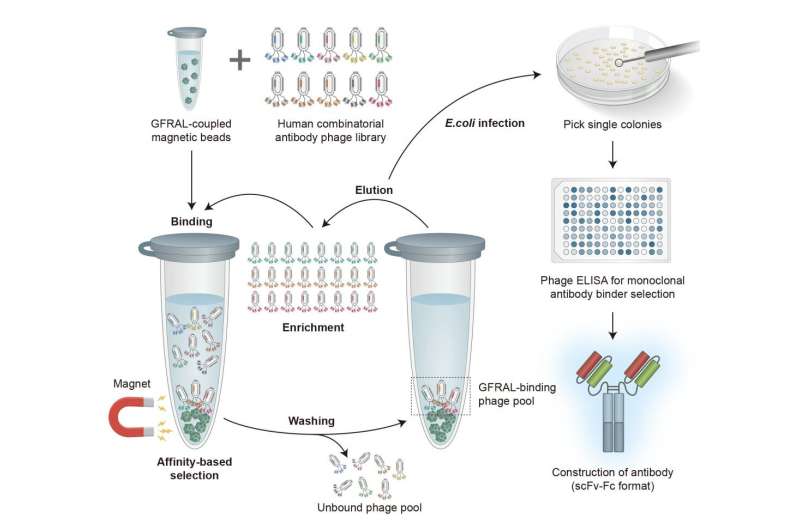
A DGIST research team led by Professor Kyungmoo Yea of the Department of New Biology developed an antibody that effectively alleviates chemotherapy-induced cancer cachexia. The team’s newly developed antibody not only improves the quality of life for cancer patients by increasing their appetite and restoring skeletal muscles and fat tissues, but also offers a new approach to anti-cancer treatment by enhancing patient response to continuous anti-cancer therapy. The research findings were published online on April 5, 2023, in the Journal of Cachexia, Sarcopenia and Muscle.
Cancer cachexia is a condition that causes significant weight loss and reduced physical strength as cancer progresses. There are currently no approved therapeutic agents worldwide. Cancer cachexia is managed via limited conservative therapy options, such as appetite stimulants. However, recent research has identified the GDF15/GFRAL/RET signaling pathway as a key factor in chemotherapy-induced cancer cachexia. This discovery offers the possibility of improving cancer cachexia by inhibiting the pathway.
GDF15 is a cytokine secreted by stress-mediated regulation and is involved in regulating signaling processes by forming a complex with the GFRAL receptor and co-receptor RET in the feeding center of the brain. Upregulation of GDF15 due to various stress conditions in the body, such as chemotherapy, is nown to be associated with appetite suppression and weight loss, resulting in cancer cachexia and other chronic diseases.
Professor Yea’s team observed the GDF15/GFRAL/RET axis that functions independently from the previously identified metabolic pathway. In particular, the team focused on GFRAL as a target for antibody-related therapeutics due to its specific expression in the brainstem. The team confirmed that the antagonistic antibodies can effectively alleviate cancer cachexia caused by the chemotherapeutic agent, cisplatin.
The results demonstrate that GFRAL antagonistic antibodies have a high potential for applications beyond cisplatin. For example, they can be used with other chemotherapeutic agents that cause GDF15-mediated cancer cachexia. Moreover, recent studies have reported the expression of GFRAL on the surface of cancer cells and suggested possible roles of the GDF15/GFRAL/RET axis in cancer cell growth and metastasis. This new discovery may lead to new anti-cancer treatment strategies.
Professor Kyungmoo Yea of the Department of New Biology at DGIST stated, “Previous cancer treatment strategies have mainly focused on removing cancer and improving patient survival. New treatment strategies, such as the GFRAL antibodies, that address quality of life issues represent a very new approach in cancer care. This development is expected to have a significant impact on the direction of future cancer treatment strategies.”
Daegu Gyeongbuk Institute of Science and Technology

